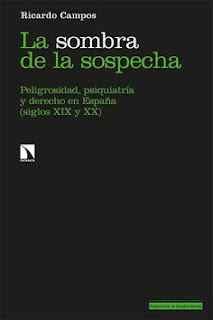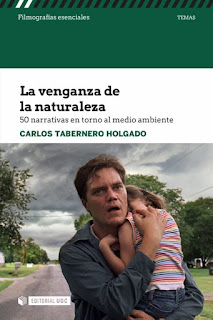Novedad: La sombra de la sospecha. Peligrosidad, psiquiatría y derecho en España (siglos XIX-XX)

Autor: Ricardo Campos La sombra de la sospecha. Peligrosidad, psiquiatría y derecho en España (siglos XIX-XX), Madrid: Libros de la Catarata, 2021, 256 páginas ISBN: 978-84-1352-197-8 Las relaciones históricas entre psiquiatría, derecho y la consideración del enfermo mental como peligroso han marcado profundamente el devenir de la psiquiatría como ciencia. Durante dos siglos la psiquiatría ha estado sumida en una fuerte contradicción entre su vocación de especialidad médica capacitada para estudiar, diagnosticar, asistir y curar las enfermedades mentales y su conversión en un instrumento de orden público —buscado conscientemente por la profesión— que la ha alejado de los principios científicos y filantrópicos que proclamaba. Su consideración del loco, del enfermo mental como sospechoso de ser peligroso por naturaleza se ha plasmado en cuatro líneas de actuación entrelazadas entre sí: la estigmatización de los enfermos mentales, los vanos intentos por definir y medir científicament...
